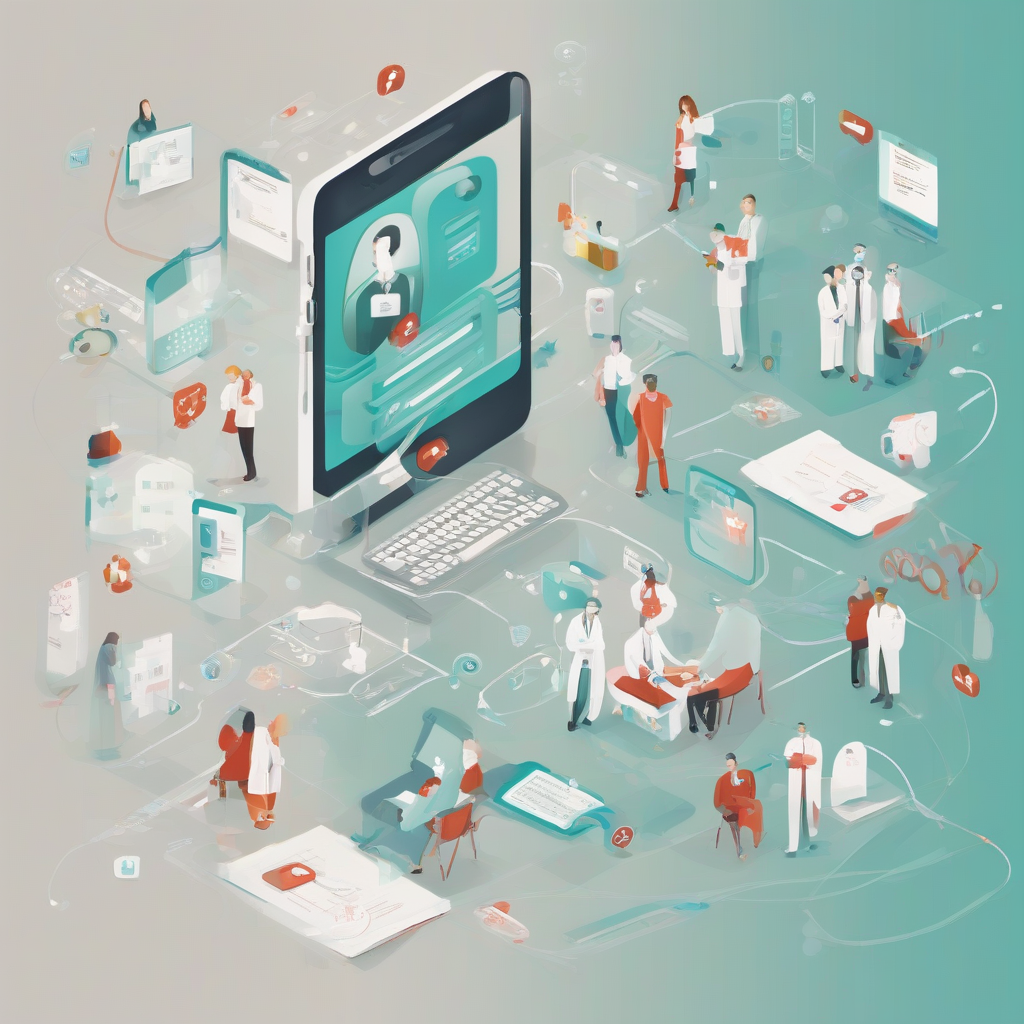Revolutionizing Healthcare: A Deep Dive into the Transformative Power of Technology
The healthcare industry is undergoing a dramatic transformation, driven by the rapid advancements in technology. From artificial intelligence (AI) to telemedicine, technological innovations are reshaping how we diagnose, treat, and manage diseases, ultimately improving patient outcomes and optimizing healthcare delivery.
Artificial Intelligence (AI) and Machine Learning (ML) in Healthcare
AI and ML are revolutionizing various aspects of healthcare. AI algorithms are capable of analyzing vast amounts of patient data, identifying patterns and trends that might be missed by human clinicians. This capability leads to:
- Improved Diagnostics: AI-powered diagnostic tools can analyze medical images (X-rays, CT scans, MRIs) with remarkable accuracy, assisting radiologists and other specialists in detecting diseases like cancer at earlier stages.
- Personalized Medicine: AI can analyze a patient’s genetic information, lifestyle, and medical history to predict their risk of developing certain diseases and tailor treatment plans accordingly.
- Drug Discovery and Development: AI algorithms can accelerate the drug discovery process by identifying potential drug candidates and predicting their efficacy and safety.
- Robotic Surgery: Robotic surgery systems, guided by AI, enable surgeons to perform complex procedures with greater precision and less invasiveness.
- Predictive Analytics for Patient Risk: AI can analyze patient data to predict the likelihood of readmission, adverse events, or disease progression, allowing for proactive interventions.
Telemedicine and Remote Patient Monitoring
Telemedicine has emerged as a vital tool, expanding access to healthcare, particularly in underserved areas. Remote patient monitoring (RPM) uses wearable sensors and other technologies to collect patient data remotely, enabling healthcare providers to monitor patients’ conditions and intervene proactively.
- Increased Access to Care: Telemedicine eliminates geographical barriers, allowing patients in remote areas or with mobility limitations to receive consultations and treatment.
- Improved Patient Engagement: RPM empowers patients to actively participate in their care by monitoring their own health data and communicating directly with their healthcare providers.
- Reduced Healthcare Costs: Telemedicine can reduce the need for expensive in-person visits, leading to cost savings for both patients and healthcare systems.
- Enhanced Convenience: Telemedicine offers greater flexibility and convenience for patients, allowing them to access care at their convenience.
- Chronic Disease Management: RPM is particularly useful for managing chronic conditions such as diabetes, heart failure, and hypertension, enabling timely interventions and preventing complications.
Big Data Analytics in Healthcare
Healthcare generates enormous amounts of data, including electronic health records (EHRs), medical images, genomic data, and wearable sensor data. Big data analytics techniques can be used to extract valuable insights from this data, improving healthcare outcomes and operational efficiency.
- Population Health Management: Big data analytics can identify high-risk populations and allow for targeted interventions to improve overall health outcomes.
- Disease Surveillance and Outbreak Detection: Analyzing large datasets can help identify disease outbreaks early, facilitating timely public health responses.
- Healthcare Resource Allocation: Big data can optimize the allocation of healthcare resources, ensuring that resources are deployed effectively and efficiently.
- Improving Operational Efficiency: Big data can identify areas where healthcare processes can be streamlined and improved, leading to cost savings and better patient experiences.
- Research and Development: Big data provides a rich resource for conducting research into disease mechanisms, treatment effectiveness, and healthcare delivery models.
The Internet of Medical Things (IoMT)
The Internet of Medical Things (IoMT) refers to the network of medical devices, sensors, and applications that connect and communicate with each other, generating and sharing data to improve patient care. Examples include:
- Wearable Sensors: Wearable devices like smartwatches and fitness trackers can monitor vital signs, activity levels, and sleep patterns, providing valuable insights into patient health.
- Implantable Devices: Implantable devices such as pacemakers and insulin pumps can transmit data wirelessly to healthcare providers, enabling remote monitoring and adjustments.
- Smart Medical Equipment: Smart medical equipment can collect and transmit data, enhancing monitoring and maintenance capabilities.
- Remote Diagnostics and Treatment: IoMT enables remote diagnosis and treatment of patients, expanding access to care.
- Enhanced Patient Safety: IoMT can improve patient safety by providing real-time monitoring and alerts.
Blockchain Technology in Healthcare
Blockchain technology offers the potential to enhance security, transparency, and efficiency in healthcare. Its decentralized and immutable nature can be leveraged for:
- Secure Data Management: Blockchain can secure patient data and improve data privacy and interoperability.
- Improved Supply Chain Management: Blockchain can enhance the tracking and tracing of pharmaceuticals and medical supplies, reducing the risk of counterfeiting and ensuring quality.
- Streamlined Clinical Trials: Blockchain can facilitate the management and tracking of clinical trials, improving efficiency and transparency.
- Enhanced Data Sharing and Interoperability: Blockchain can enable secure and efficient sharing of patient data between healthcare providers.
- Patient Empowerment: Patients can have greater control over their own health data through blockchain-based systems.
Challenges and Ethical Considerations
While technology offers tremendous potential for healthcare, several challenges and ethical considerations need to be addressed:
- Data Privacy and Security: Protecting patient data from unauthorized access and breaches is paramount.
- Algorithmic Bias: AI algorithms can inherit biases from the data they are trained on, leading to unfair or discriminatory outcomes.
- Data Interoperability: Ensuring seamless data exchange between different healthcare systems remains a challenge.
- Cost of Implementation: Implementing new technologies can be expensive, posing a barrier for some healthcare providers.
- Digital Divide: Unequal access to technology can exacerbate health disparities.
- Ethical Implications of AI: The use of AI in healthcare raises ethical questions about accountability, transparency, and decision-making.
- Regulation and Governance: Appropriate regulations and governance frameworks are needed to ensure the responsible development and deployment of healthcare technologies.
The integration of technology into healthcare is an ongoing process, presenting both opportunities and challenges. Addressing the ethical and practical considerations is crucial to harnessing the transformative power of technology to improve healthcare access, quality, and affordability for all.

